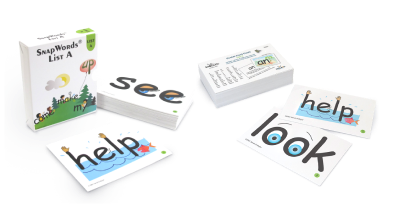
Why We Need Music in Our Schools
Are music and the arts just as important as core school subjects, such as math, English, or history? We think so. Whether your child goes on to be a professional musician or just sings in the shower, music lays an important foundation in all children whether it is language development, math, or practical life lessons.
March is National Music in Our Schools Month, a time when music in the classroom is encouraged and recognized for all its benefits. However, it is our belief that music needs this kind of celebrating in schools year-round - and this is why:
Language Development
According to the PBS, in children ages 2 - 9, music benefits language development, something very important during that stage of life. While kids come into the world wired, for the most part, to decode words and sounds, music education helps enhance those abilities. According to the Children's Music Workshop , music education's effect on language can be seen in the brain:
"Recent studies have clearly indicated that musical training physically develops the part of the left side of the brain known to be involved with processing language, and can actually wire the brain’s circuits in specific ways. Linking familiar songs to new information can also help imprint information on young minds."
Math & Spatial-Temporal Skills
 U.S. Department of Education data shows that students who are involved in band during their middle and high school time demonstrate, "significantly higher levels of math proficiency by grade 12." These results were even more striking in families with lower income. Those who took music lessons were more than twice as likely to perform at the highest levels in math as their peers who were not involved in music. Spread Music Now, an organization that supports and helps fund innovative music programs in schools, says musical training in rhythm emphasizes proportion, patterns, fractions, and ratios that can be directly related to mathematical functions.
U.S. Department of Education data shows that students who are involved in band during their middle and high school time demonstrate, "significantly higher levels of math proficiency by grade 12." These results were even more striking in families with lower income. Those who took music lessons were more than twice as likely to perform at the highest levels in math as their peers who were not involved in music. Spread Music Now, an organization that supports and helps fund innovative music programs in schools, says musical training in rhythm emphasizes proportion, patterns, fractions, and ratios that can be directly related to mathematical functions.
The article quotes one high school student as saying, "I've been playing the violin for over 10 years...In the meantime, I've developed a liking for high-level math, like calculus."
According to PBS, research has found a link between music and spatial intelligence. This means children who understand music have an advantage when visualizing various elements that should go together, something a child would do when solving a math problem. These skills also come into play when solving multi-step problems in other areas such as architecture, engineering, art, and working with computers.
Practical Life Lessons
The benefits of a music education program do not end with academics. A music program can have positive person, social, and motivation effects on a child. One study showed that involvement in music drives students to become involved in more extracurricular activities and student government, and increases the odds that a student will go on to graduate from both high school, as well as a four-year college.
A study done at Columbia University showed that students involved in the arts, like music, are generally more cooperative with teachers and peers, more self-confident, and better able to express themselves. The study also showed these students gained critical thinking and problem-solving skills through working with others when performing.
Participating in the arts also creates a supportive environment for kids that promotes acceptance of constructive criticism that safely allows one to take risks and overcome fears.
In one Fox News article, Kelly Dent, River Edge Public Schools 2011 Teacher of the Year, said she loves watching students express themselves in cooperative settings, such as a music class.
"The experience can be as simple as performing a hand clapping game with a partner, or as complex as a four-part canon, but the result is the same -- an improvement in emotional well-being and enhanced sensitivity to the needs of others. In this way, music programs, especially those focused on making music, play an essential role in the development of social skills and emotional awareness in students."
- Kelly Dent
For Life

Last, but certainly not least, music is for life. As far as an extracurricular activity goes, music is something you can practice and enjoy for years to come. Whether it is singing at home, playing the guitar around a campfire, or performing with your violin in front of a crowd, music is something children can take with them wherever they go.
Has music impacted your life in any way? Let us know how music education in school helped you!
